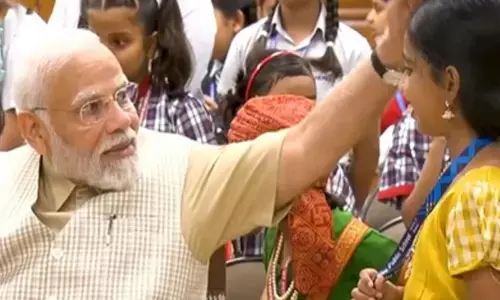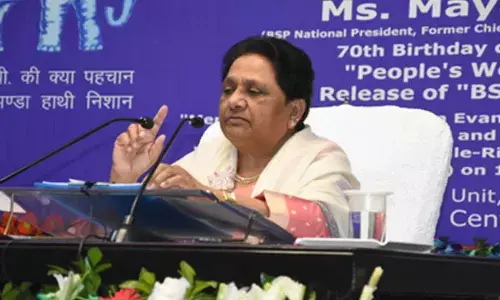Reasons How Micro-Schools Are Revolutionizing School Education

Education has always been in an evolving phase, and with trends and advancements over the period, the education industry is witnessing an unprecedented shift. The methods and techniques we use to educate our children are now transformed in the fast-moving world.
In the last five years, traditional forms of teaching are witnessing a shift towards engaging and immersive methodology. Various forms of schooling have become prevalent in the industry. With the advent of technology and increased internet access, online schooling became popular; witnessing its pros and cons, hybrid learning was being adopted. A shift towards homeschooling started to gain momentum in India, where parents choose to educate their children at home, following various curricula.
One of the most recent trends gaining popularity in education is micro-schools. Micro-schools are small schools that focus on personalized education and cater to the specific needs of each student. As families grapple with a changing education environment, many are searching for alternatives that offer students more flexibility and individualized learning opportunities. Micro schools can create a transformative shift in teaching and learning methods.
Micro-schools are making a significant impact on the landscape of education. These small-scale, alternative learning environments are gaining popularity as a viable option for parents and students seeking personalized and innovative educational experiences. The tailored approach allows for more targeted instruction and a more flexible curriculum, ensuring that students can progress at their own pace and explore topics of particular interest to them. In addition, micro-schools present a new and exciting educational perspective, focusing on personalized learning experiences and the principles of Self Awareness, Self-mastery and Self-regulation.
With an estimate of 55 million school children in America, 2 to 4 percent turns out to be 1.1 to 2.2 million children who are micro-schooling; with small class sizes and specialized educators. These intimate learning communities cater to each student's unique needs, passions and learning styles. By fostering strong relationships among students, teachers and parents, micro-schools create a nurturing environment where students feel valued, supported, and inspired. A personalized approach encourages students to explore their interests, take ownership of their learning journey and develop vital skills that prepare them for a future brimming with possibilities.
As micro-schooling is growing globally, India too has the potential to adopt this model. The digital future of education empowers learners by enhancing connectivity and expanding access to educational resources. Through technology integration and connectivity, education can become more inclusive, personalized and accessible to people across the globe.
Considering few reasons why micro-schools are changing the education landscape are:
Focus on Whole Child Development: Micro-schools prioritize the whole child's development by placing equal importance on academic, social, emotional, and physical development. This approach recognizes that children are complex beings and that their education should address all aspects of their growth.
Student-Led Learning: Micro-schools promote student-led learning by giving students more agency over their education. Teachers are facilitators, helping students identify their interests and passions and develop the skills and knowledge necessary to pursue them. This approach fosters a sense of ownership over their learning and encourages students to be self-directed and independent learners.
Strong Relationships with Parents: Micro-schools prioritize building strong relationships with parents, recognizing that parents play a critical role in their child's education. By involving parents in the learning process and keeping them informed about their child's progress, micro-schools create a collaborative and supportive environment.
Emphasis on Real-World Skills: Micro-schools place a strong emphasis on teaching real-world skills that are relevant to today's job market. This includes skills like problem-solving, critical thinking, communication, and collaboration. Micro-schools prepare students for success in the 21st-century workforce by teaching these skills alongside traditional academic subjects.
Innovative Teaching Methods: Micro-schools are often at the forefront of innovative teaching methods and technologies. With a focus on personalized education and flexibility, micro-schools are more willing to experiment with new approaches to teaching. This can include things like project-based learning, blended learning, and experiential learning. By embracing new teaching methods and technologies, micro-schools can provide students with a more engaging and effective educational experience.
Technological Advancements: Micro-schools also have the potential to leverage technology effectively. They can incorporate online resources, virtual learning tools, and educational platforms to enhance the learning experience. This blend of in-person and online instruction can offer a more comprehensive and flexible education, allowing students to access a wide range of resources and learning opportunities beyond the physical boundaries of the classroom.
Education should be inclusive and accessible to all, regardless of their background, socio-economic status or physical abilities. A well-rounded education prepares individuals to navigate the complexities of life and make meaningful contributions to their communities. Education should embrace student-centred approaches that recognize individual learners' unique needs, interests and learning styles.
As the educational landscape continues to evolve, micro-schools are likely to play a significant role in shaping the future of education. Micro-schools offer a unique and compelling alternative to traditional schools with a focus on personalized education, flexibility, community building, innovative teaching methods, and cost-effectiveness. As the world continues to change, it is anticipated that micro-schools will continue to innovate and adapt to meet the evolving needs of students.
(The author is Founder, Dreamtime Learning Hub)
















